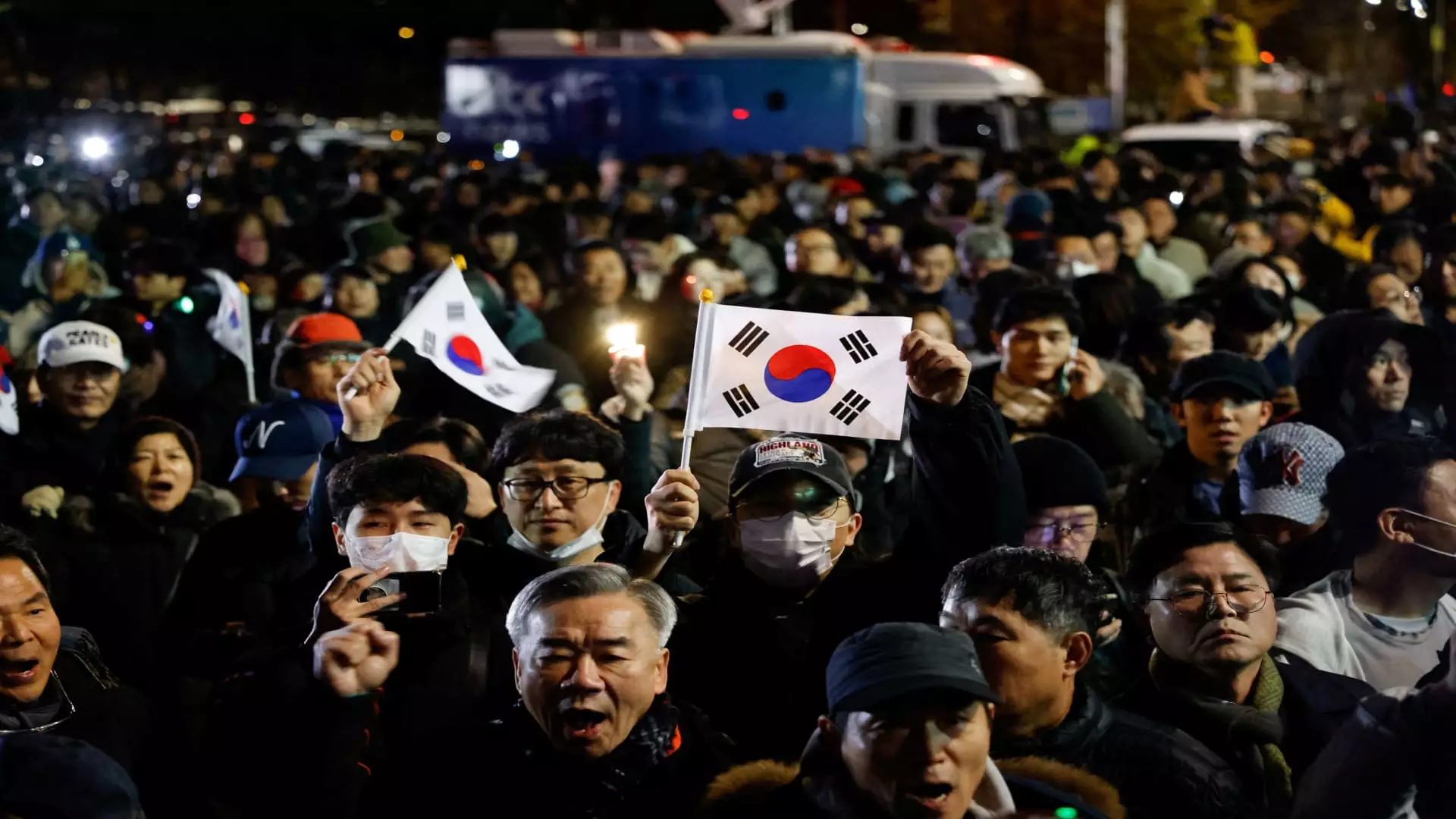In recent weeks, South Korea has witnessed a profound political crisis, centering around President Yoon Suk Yeol’s controversial actions concerning martial law. A once-prominent figure in South Korean politics, Yoon is now embroiled in a scandal that has not only drawn massive public backlash but has also diminished his authority within his own party and the military. An official from the justice ministry announced on Monday that Yoon faced a travel ban originating from a botched attempt to impose martial law, underscoring the dire state of his presidency.
Yoon’s botch has led to rampant speculation regarding his political future; calls for his resignation have intensified, causing a crack within the ruling People Power Party (PPP). Although he has since apologized for his miscalculation and stated he would defer to his party regarding his political fate, he has yet to resign. The political landscape has shifted dramatically, with Yoon’s actions prompting a criminal investigation that has only further complicated matters. His ability to govern effectively has been challenged, and a recent parliamentary vote on impeachment exemplifies the deepening uncertainty over his leadership.
The Martial Law Fiasco
The essence of the current crisis revolved around Yoon’s attempt to declare martial law on December 3. He granted sweeping emergency powers to the military under the auspices of rooting out “anti-state forces.” Regrettably, this move was short-lived; parliamentary resistance culminated in a unanimous vote that nullified the martial law declaration just six hours after its inception. This swift backlash not only undermined Yoon’s credibility but incited dissent among senior military officials, many of whom have voiced their refusal to follow any future attempts at imposing martial law.
In reaction to this political debacle, the PPP has taken measures to establish a task force aimed at addressing the fallout from the martial law incident. With calls growing from the opposition for Yoon to be stripped of his military authority, the political atmosphere has become exceedingly contentious. Political opponents have demanded urgent action, including calls for his impeachment, reflecting their belief that his actions threaten the democratic foundations of South Korea.
In response to Yoon’s diminishing power, the PPP has suggested delegating presidential authority to Prime Minister Han Duck-soo. This measure has been met with heavy scrutiny. Critics argue that it lacks constitutional legitimacy and compromises democratic integrity, as the prime minister is not elected by the people in the same manner as a president. This arrangement raises questions about the prime minister’s capacity to act legitimately in matters of state control, particularly on military and diplomatic issues.
With Yoon’s authority effectively curtailed, the prospect of a power vacuum looms larger. Critics warn that South Korea’s political environment is spiraling into a constitutional crisis, where the premature resignation of a sitting president could set a troubling precedent. As political analysts evaluate the implications, they caution against the erosion of institutional trust that could ensue given the circumstances.
The repercussions of this political turmoil extend beyond domestic concerns; the future of South Korea’s economy, the fourth-largest in Asia, stands on shaky ground. With Yoon’s presidency fraught with challenges, there are palpable fears regarding the market’s stability. Financial regulators have begun implementing contingency plans, ensuring liquidity to mitigate potential fallout. The implications of a disrupted political environment threaten to hinder economic growth, which South Korea relies on heavily in a globally interconnected marketplace.
Additionally, this leadership crisis occurs amidst escalating geopolitical tensions. U.S. officials have expressed concern, indicating that the United States, South Korea’s long-time ally, will closely monitor the developments. The geopolitical ramifications are particularly significant given North Korea’s increasingly warm relationship with Russia; both nations are reportedly collaborating amidst the ongoing war in Ukraine. The heightened security threats posed by North Korea demand a unified and stable South Korean administration, further complicating the precarious situation.
As South Korea navigates this complex political crisis, the future of Yoon Suk Yeol’s presidency remains uncertain. The calls for accountability ring louder, reflecting a populace that seeks transparency and adherence to democratic norms. The PPC’s actions to form a task force indicate an acknowledgment of the gravity of the situation, but whether these measures will stabilize the political landscape is still debatable. With significant economic and geopolitical implications at stake, the necessity for unity and coherent governance has never been more critical in South Korea’s challenging political climate.


Leave a Reply